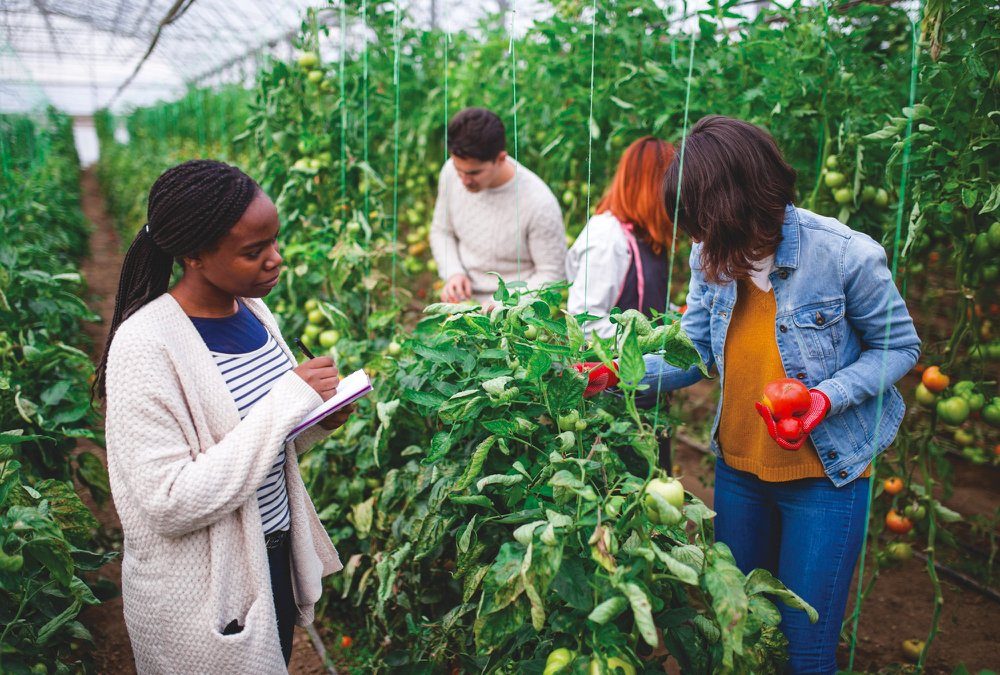Bolstering the food system is about people, regulations

Farm sector representatives say greater investment in public outreach and improved risk management programs are needed to propel the sector beyond the pandemic.
Industry representatives who were part of the launch of the Ontario Chamber of Commerce’s (OCC) report on the province’s food system and COVID-19, also mentioned more agriculture-oriented education opportunities for young adults and threats posed by unnecessary bureaucracy.
Why it matters: Strengthening the province’s food system will require greater effort by all food and farm stakeholders, especially to address labour and market volatility issues.
The OCC, along with supporting educational and agricultural organizations, held a virtual panel discussion on April 12. The OCC report says the sector’s $47 billion contribution to Ontario’s gross domestic product and 861,000 jobs makes it a potent force in the post-pandemic recovery.
“With the onset of the COVID-19 pandemic in March 2020, the food supply chains in Ontario and Canada experienced numerous pressures such as panic buying and shifts in consumptions levels and consumer spending,” reads the report.
“Ultimately, while the pandemic caused parts of the food supply chain to bend, the chain itself did not break. The food system stabilized relatively quickly and continued to provide Canadians with uninterrupted access to food. This owes to the overall strength and resiliency of the many sub-sectors that make up Ontario’s complex food supply chain.”
The beef supply chain was one of many systems which, while flexible, encountered stark vulnerabilities.
Richard Horne, executive director of Beef Farmers of Ontario and one of three participating panellists, says improving existing insurance systems, specifically AgriStability, would go a long way in helping Ontario’s beef producers weather current and future storms. He cited it as a critical factor allowing the sector to take advantage of the high demand for beef.
“It really leaves a large hole in terms of the industry’s ability to take advantage,” says Horne. “We need timely, bankable, well-funded insurance programs.”
Managing supply issues
Finding more effective ways to manage supply disruptions is also critical. During periods of the pandemic, Horne says the opening of provincial borders for increased product flow helped. However, these strategies were implemented at “the worst times,” and in an ad-hoc fashion.
Changes are required to Ontario processing capacity for products that don’t leave the country, he said. One option is to match processors with specific out-of-province processors or certified facilities with federal standards, minus the export rules.
However, Horne also cautioned that Ontario beef producers face significant competitive pressure from those outside the province, as well as in other countries. Changes to the regulatory system must be made carefully.
“Ontario has the most to lose and gain by opening up borders. We need to be careful of unintended consequences, but there are opportunities for the province as well.”
Attracting the right people
Greater investments in education are also required. While this includes public outreach on food and farming, substantial effort is needed to attract younger people to the sector.
Cathy Lennon, general manager of the Ontario Federation of Agriculture and another participating panellist, believes the sector needs to make a concerted, collective effort to highlight the breadth and diversity of careers available in agriculture — from banking and law, to farming and technology development. Solving the labour crisis would, she says, solve the most significant barrier facing farms and agribusinesses.
“We need to do a better job as an industry to attract the next generation…. I’d love to see us be able to pull together.”
Horne, as well as third panellist Shane Jones, a professor and program coordinator at Durham College, expressed a similar sentiment. For Jones said wider outreach should focus on changing the prevailing ideas about farm size, noting success and fulfilment can come from large as well as small acreage production.
He also supports a back-to-basics approach for those who do not come from a farming background. Meeting others on their level and fostering interest from the ground up lays a foundation.
Other outreach efforts, says Lennon, should include the promotion of local food programs. These could include working with municipalities to identify local resources and promote agri-tourism as well as local shopping.
Even if more Canadians can be attracted, a lack of interest in many jobs will continue. For this reason, she says enhanced immigration policies are also needed to ensure interested, qualified people from outside the country have access to those positions.

